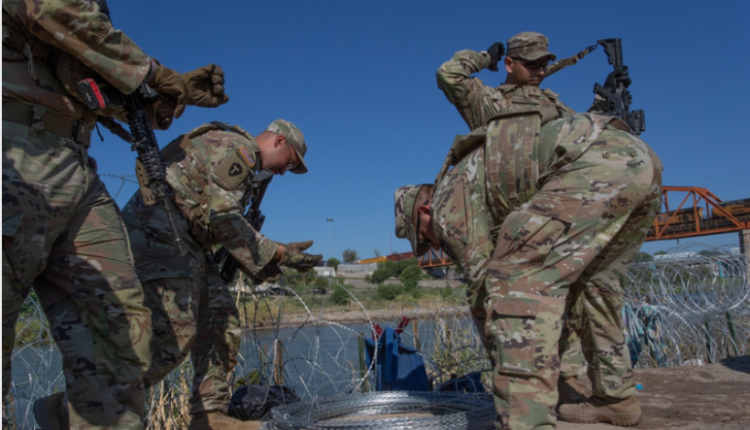The recent developments along the Texas southern border, where the state continues to install razor wire despite a U.S. Supreme Court ruling, highlight the complex and often contentious relationship between state and federal approaches to border security and immigration.
Earlier this week, the Supreme Court, in a close 5-4 decision, overturned a lower court’s ruling that had previously prevented federal agents from removing razor wire along the border. However, Texas Governor Greg Abbott has remained firm in his stance, insisting that the state will keep adding more wire. He argues that Texas’ constitutional right to defend itself overrides federal law, a point he emphasized in a lengthy statement.
Texas Defies Supreme Court
This situation has unfolded as the Texas Military Department was seen reinforcing the border in Eagle Pass, southwest of San Antonio, as part of the state’s intensified security efforts. The federal government, on its part, argues that its agents need unhindered access to the border to effectively patrol and provide necessary assistance to migrants, suggesting that the razor wire is an impediment to these operations.
Despite the Supreme Court’s decision, which technically allows federal agents to cut the wire, there remains a lack of clarity regarding the federal government’s next steps. When queried, the White House did not offer specifics on how Border Security plans to address the issue. They did express relief that the Supreme Court vacated the injunction that had hampered border security operations.
The razor wire issue is part of a larger lawsuit that is still unresolved. In the meantime, Texas is proceeding with its plan to add more wire, reflecting a broader challenge in U.S. immigration policy and the methods of border security. Public opinion in Texas appears to largely support the state’s efforts to curb illegal immigration and discourage risky crossings.
Read More:
- Brooklyn woman claims husband killed drug dealer, stored body in her fridge
- Chick-fil-A Settles Class-Action Lawsuit: Compensation for Customers Over Inflated Delivery Charges
- Family of slain Polk County woman Sierra Hernandez released from jail, charges dropped
The situation epitomizes the ongoing legal and policy clash between Texas and the federal government over immigration and border security. As the legal battle continues and Texas asserts its authority over border security, the response from the federal government and the eventual outcome of the larger legal dispute will be pivotal. This ongoing saga not only highlights the challenges in U.S. immigration policy but also raises questions about the balance of power between state and federal authorities.

